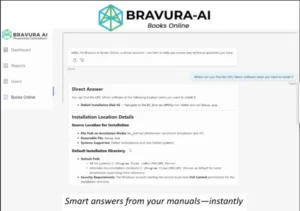The pharmaceutical and medical device industries operate under stringent regulations, where product efficacy, safety, and compliance are paramount. Artificial intelligence (AI) is proving to be a game-changer, fundamentally transforming manufacturing and quality assurance (QA) processes from drug discovery to patient care
Key areas where AI is making a significant impact in pharmaceutical quality control and compliance:
• Enhanced Quality Control & Defect Detection: AI-powered systems improve precision and effectiveness through automated inspections and defect detection. They can analyse vast amounts of data and images to catch even the smallest flaws and anomalies that human inspectors might miss, thereby reducing waste and enhancing product reliability. Examples include Pfizer using AI to check drug packaging and labels for inconsistencies.
• Predictive Maintenance: AI analyses historical and real-time data to predict equipment failures, optimizing maintenance schedules and preventing unplanned downtime. This proactive approach ensures continuous operations and consistent product quality.
• Streamlined Documentation and Reporting: AI automates documentation processes, increasing accuracy and creating comprehensive audit trails, which significantly aids in regulatory compliance.
• Compliance with Quality by Design (QbD): The pharmaceutical industry is increasingly adopting QbD principles, a proactive, science-based approach to analytical method development. AI complements QbD by enhancing method robustness, reliability, and reproducibility, reducing undesirable “out-of-trend” (OOT) and “out-of-specification” (OOS) results. The existing Good Manufacturing Practices (GMP) framework, including Computerized System Validation (EU-GMP Annex 11), is robust enough to manage new risks introduced by AI, through proper risk assessment and mitigation. This allows for the integration of AI solutions while maintaining the highest standards of product quality, data integrity, and patient safety.
• Accelerating Drug Development: AI streamlines drug development, optimizes drug formulations, and accelerates clinical trials and regulatory approvals by enabling more effective processes and predictive analytics.
While AI introduces new potential risks, existing GMP frameworks provide well-established procedures for risk assessment and mitigation, facilitating its responsible adoption in manufacturing environments. This ensures innovation while safeguarding public health and safety.




